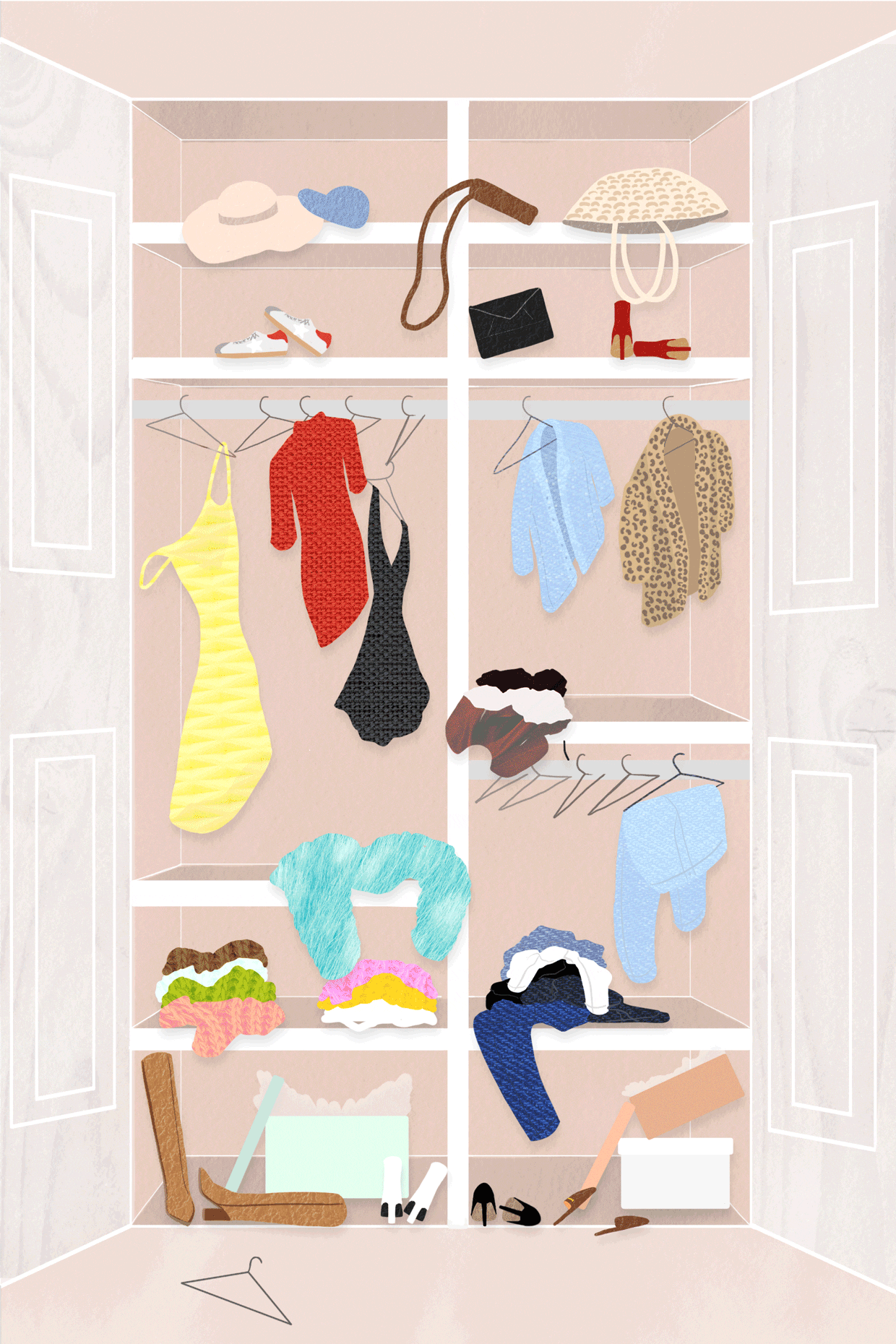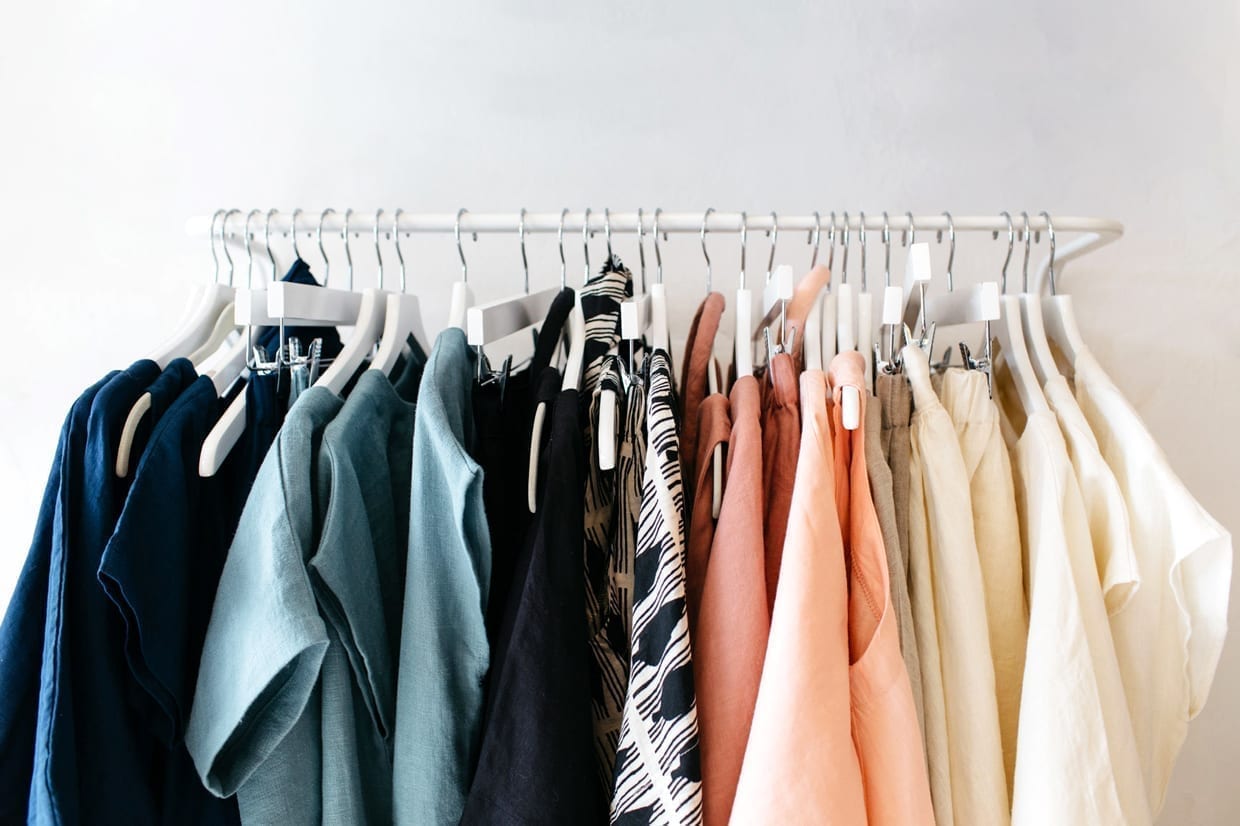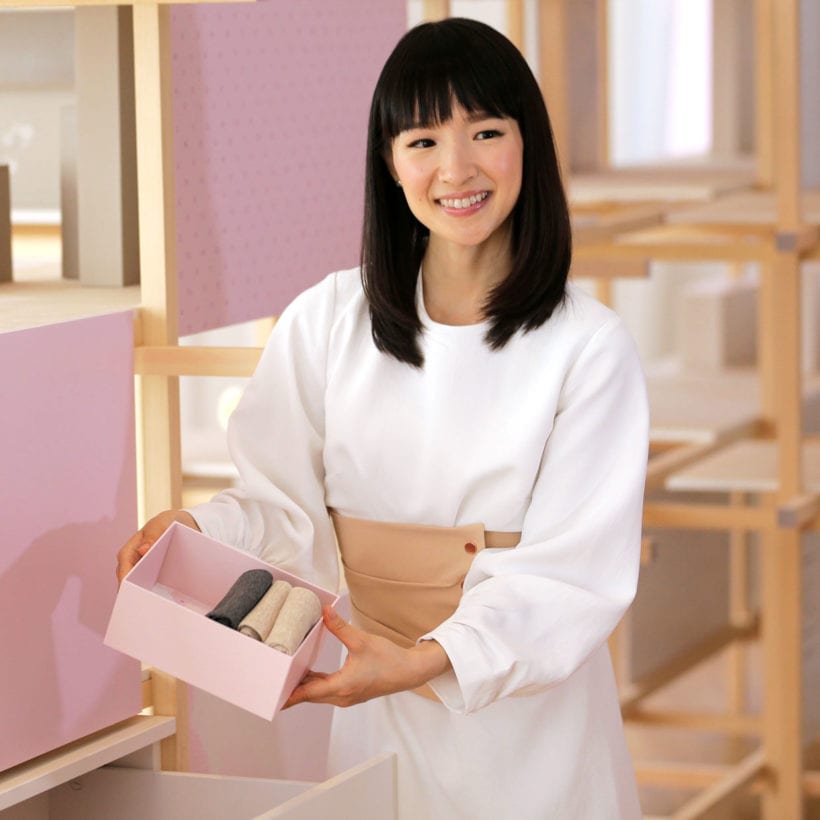At New York Fashion Week, Tom Ford debuted his Autumn/Winter 2019 collection and the thing to note was not the celebrities in attendance (Karlie Kloss and Joe Alwyn, to name a few), nor the models walking the runway (of course there was a Hadid), but instead that Ford set the tone for the rest of fashion week and, quite frankly, the season. Monochrome is in.
With deep red suits and lilac silk looks, Ford embraced muted tones and little embellishment. But the luxurious craftsmanship one has come to expect from the designer exuded off each look that walked down the runway. And it did not stop there. We saw sleek camel outfits at The Row, breathtaking pastels (pink! baby blue!) at Simone Rocha’s London Fashion Week presentation, and in Milan, a stand out: three head to toe jewel-toned models at Max Mara.
In 2019, where simplicity has become the new normal — and people watch Marie Kondo’s Netflix series about decluttering for fun — it is no surprise that the trend has transferred into fashion.
Kondo aside, the minimalist movement has been gaining momentum as more of us become aware of the negative environmental impact of too much ‘stuff.’ While the definition of a minimalist lifestyle varies, the concept is centered on learning to live with less material possessions. Reducing your impact on the planet is one thing, but the well-being benefits of living a more streamlined life should not be underestimated.

Fully embracing a minimalist style — and approach to life — can be challenging at first, but if fashion week is any inspiration, cleaning out your closet is a great place to start. “We only tend to wear a small percentage of our clothing, with the majority of people only wearing about 20 percent of what they own,” Madeline Petrow, founder of sustainable fashion marketplace MAMOQ, commented. “A study found that 50 percent of survey respondents admit to having regular ‘Wardrobe Rage’ or irrational irritation when trying to figure out what to wear,” she added. Whether it is clothes that are too small, items that never got returned or pieces that did not stand the test of time, it is likely you have some excess clothes in your closet.
In our increasingly complex world, minimal living helps us free up both physical and mental space. “We live in a world where we are constantly inundated with choice and we tend to over-consume, both materially and mentally. What our mind and energy really craves is simplicity,” says life coach Alice Law. Law emphasizes that when we create a simple physical space, we make more mental space and this encourages new ideas, creativity, people and experiences to flow in. “When we are living in clutter it brings overload, uncertainty, confusion and over-stimulation into our minds.”
The benefits of your sorting through your closet are two-fold. Primarily, the process itself is a cathartic and cleansing one. “Clearing out your closet helps lift the emotional weight and mental confusion of looking at things that we no longer need or want,” Law says. The nature of this process boosts self-confidence and mental clarity. “It will help you feel in control and decisive,” she adds. The result? “You’ll feel lighter energetically and clearer-headed.”
The majority of people only wearing about 20 percent of what they own.
After the process is complete, the result will continue to make a positive impact on a daily basis. With a closet of clothes you love, that awful feeling of having nothing to wear will be alleviated. Furthermore, you save both mental energy and time getting dressed when you are dealing with a smaller wardrobe. In fact, a number of highly successful people (including Arianna Huffington and Mark Zuckerberg) have spoken about the value of wearing the same outfit daily in order to make the ritual of getting dressed less hassle. While this is certainly an extreme example, there is definitely an appeal in reducing the choices one has to make each morning.
Similarly, wearing clothes you are proud to own will boost self-confidence. This does not just apply to work or weekend wear but the clothes you wear at home, in bed and to the gym, too. A closet cleanout is the perfect time to get rid of that old boyfriend’s t-shirt or a pair of holey leggings you slob around in and purchase some replacement loungewear that is comfy yet chic. You might be surprised how it can shift your mindset and attitude.
Once you have had a closet cleanout and reorganization, shopping for clothes becomes much easier. Sticking to a capsule wardrobe is not about giving up buying entirely but buying in a smarter way. You will not only find pieces you have forgotten, but the gaps in your collection will become more visible and you can purchase more sensibly to fill them. For instance, you can see what colors, styles and fabrics you are drawn to and buy similar pieces in the future. This helps create a cohesive collection of clothes that can be styled together. Plus, limiting yourself to shopping in this way encourages buying quality over quantity, an ethos that will benefit both the planet and your ongoing wellbeing — the ultimate win-win.
How to clean out your closet:
- Set aside a decent period of time and consider carefully what kind of closet you want to create.
- Empty your entire collection of clothes onto the floor or bed. Do not forget sections of your closet like loungewear, gym kit or pajamas.
- Go through each item individually and think about a) have you worn it in the last year and b) does it spark joy.
- Divide items into ‘keep,’ ‘store,’ ‘go.’ Items that do not fall into the former two categories must be put in the ‘go’ pile. Take time to try clothes on and think carefully about whether you really need them. Items you want to keep, but are not currently needed (for example, they are not season-appropriate or are only for special events such as a wedding), can go into storage.
- Items that you choose to keep can then be organized into categories (e.g. dresses, jackets and jeans) and then hung or folded accordingly.
- Items that are in the ‘go’ pile can then be sorted again into ‘sold’ or ‘donated’ piles. Items of worth can be sold via sites like eBay, depop or Vestiaire Collective whereas ones of less value can be donated, gifted to friends or taken to a thrift shop.
We only recommend products we have independently researched, tested, and loved. If you purchase a product found through our links, Sunday Edit may earn an affiliate commission.










